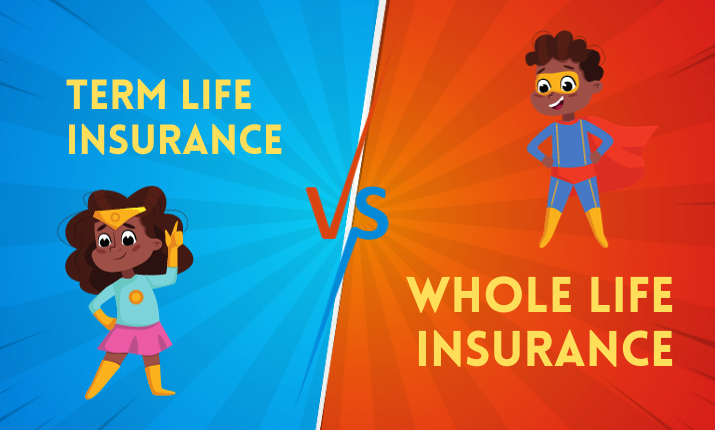Introduction
Within insurance, two primary options stand out: Term Life and Whole Life policies. Deciding between them can be important as it affects both your finances and those close to you; in this article, we’ll examine their features, benefits, and best scenarios for each one.
Understanding Term Life Insurance
As its name suggests, term life insurance covers a predetermined term or period, typically between 10-30 years, depending on your policy choice. It offers an easy approach to insurance, with its sole goal being to provide death benefits in case of policyholder death.
Exploring Whole Life Insurance
Whole life insurance offers more comprehensive and long-term protection. It covers your lifetime with death benefits and a cash value component that builds over time – part of your premium goes toward building this cash value, which may later be borrowed against or withdrawn in certain instances.
Advantages of Whole Life Insurance
Lifetime Coverage:
Whole life insurance offers peace of mind and security for you and your loved ones for your entire life, giving them peace of mind as well. Its Cash Value Growth: Over time, its cash value accumulates as savings or investment capital.
Tax Benefits:
Due to tax deferral, cash value accumulation can grow faster than taxable accounts.
Making the Decision
Before making your choice, carefully consider your long-term financial goals. That might be preferable if you want to use term insurance to provide cost-effective coverage over a set period. Still, if long-term investing and building cash value over time is more appealing, then whole life might be best.
Budget Analysis
Your budget is essential in choosing which insurance best meets your needs. Term insurance typically offers lower premiums and makes an appealing choice for individuals on tight budgets; whole life provides lifelong coverage but comes with higher premiums.
Affordability
Term life insurance premiums tend to be significantly less than whole-life policies, making it a popular choice among those on tight budgets.
Flexibility
Life events that call for additional coverage, like paying off a mortgage or sending children through college, can be aligned with specific term insurance plans to provide optimal coverage at a particular moment in life.
Higher Death Benefit
Term-life policies generally provide a higher death benefit than whole-life policies for the same premium.
Term Life Insurance Cons
Limited Coverage Period
The coverage only lasts for the specified period before expiring, after which either renewing or converting may become available again.
Potentially Higher Long-term Costs
If your needs extend past the initial term, renewing or purchasing new policies at an older age may resthan traditionaliums.
Whole Life Insurance Pros
Lifetime Coverage
Whole life insurance provides financial security and peace of mind throughout your lifetime, providing financial security for yourself and yourand loved ones.
Cash Value Growth
Over time, your policy’s cash value accumulates, providing savings or investments you can borrow against or withdraw in certain situations.
Tax Benefits
Accumula offernlollipop aaffordability tax deferral, allowing them to compound more quickly higher than aditional whole-lifeccounts.
Whole Life Insurance Cons
Higher Premium
Whole life insurance premiums tend to be higher than term, which may financially strain indiviinindividualsn d cash value componentsandy rshosshould comemwithension for proper policy management.
Lower Returns
Though your cash value componi.ncrease over t.ime, its returns may not match those alternative investmbenefit than losing.
Conclusion
Threre ion no easy-to-apply rule between term and whole life insurance policies. Your decision depends on a range of personal factors – your circumstances, financial goals, and budget being just a few examples – so take the time to evaluate your needs before consulting a reputable advisor before making your final choice.
FAQs
Can whole life insurance be seen as an investment?
Whole life insurance should be seen as a long-term investment due to its cash value component; however, before making this decision, we must carefully consider its pros and cons.
Can I change from term life insurance to whole life?
Many insurance providers provide the option of switching a policy between term and full life coverage, providing added flexibility.
What will happen to my whole-life policy’s cash value if I cancel it?
than they clearancesh value minus any applicable fees or penalties will be returned to you.
Are premiums fobe r whbee life insurancindividualndividuals andn?
Yes, premiums for whole-iand cies tend to remain unchanged during their life span.
Can I have both term and whole life insurance policies at onof ce?
Having offloads ing anlosinged choice between term and whole life insurance options, it is essential to carefully weigh their pros and cons before making your choice.

